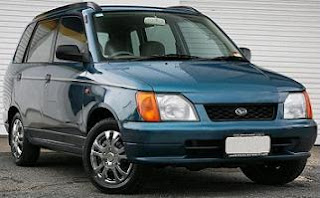 Buying a used car is a mine field. There are so many things to look out for, it is hard to know where to begin being wary. Here are some things to look out for.
Buying a used car is a mine field. There are so many things to look out for, it is hard to know where to begin being wary. Here are some things to look out for.
1. Decide on the right car for you. This may mean not getting what you want, but more what you require. Research the Consumers Reports Buying Guide or their online used car buying kit; also check out their free guide to used car buying. Remember that highly rated cars command premium prices. A lower rated car can be a gold mine if you can put up with a design flaw or two.
2. Use an online calculator to figure out payments. Don't dwell on price just yet; consider how long you will keep the car, what an affordable payment is for your budget and how much you can put down. Consider a brand new car, particularly if it has subvented financing (a manufacturer's reduced financing rate). And strongly consider, if possible, buying outright. The absence of monthly payments can have a wonderful effect on your finances.
3. Ask a lot of questions. Get as much history as possible of the vehicle. Try to get the previous owners name and call them. Run your own CarFax; dealers have been known to "lose" the last sheet.
4. Test Drive the car. Always. Try the car on different roads, and drive for at least 15 minutes. Remember you will be driving this car for a while. See if it pulls to one side or the other. It's alignment (or bad tires) it if pulls all the time; it's a brake problem if it pulls when stopping. Check for brake shudder when stopping; (that's front rotors and probably pads). It should not wander; (tires or steering components). If you have time, sit in the car for an hour...seats often feel comfortable until you've sat in them a while.
5. Get a professional check. Get the car checked professionally. If the dealer won't let you have it checked by your own mechanic, run, don't walk from that store. Pay the mechanic to check it. He should put it up in the air and check for frame/underbody damage.
6. Negotiate. Always have an idea of what you want to pay for the vehicle before you start. Go in lower, and try to compromise at the point that is good for you. Remember a "win win" situation is always required for a sale to occur. Never negotiate if you are not ready to say yes there and then. It will lose you power/credibility over the dealer, when you are ready to buy.
7. Always get all the paper work. V5, MOT, and service history. Insist on 2 sets of keys minimum.
8. Get a vehicle report. You don't want to end up with a car that has been flooded and since Katrina many used cars have been brought on the lot with just that problem. Ordering a CARFAX Vehicle History Report is worth your time and money and empowers consumers in knowing exactly what they are purchasing.
9. Know the financial vehicle history of the used car. To make sure a car is not stolen, police agencies have records of stolen vehicles reported to them. Consult with the police if you are not satisfied with the amount of detail you are getting from the vehicle history....it can save you time and worry down the line.via
No comments:
Post a Comment